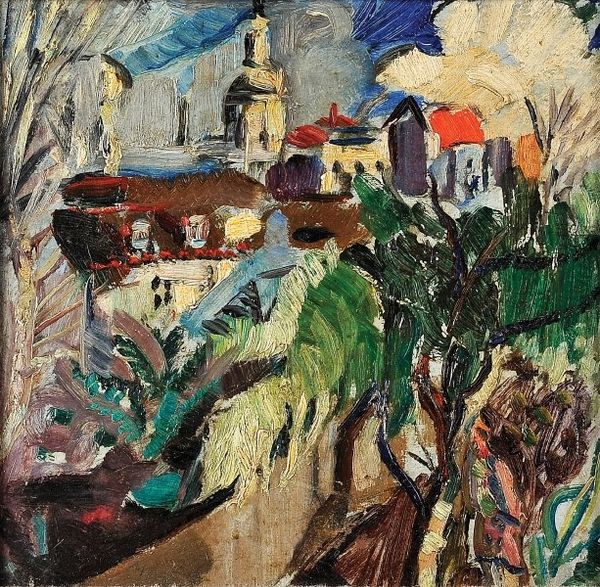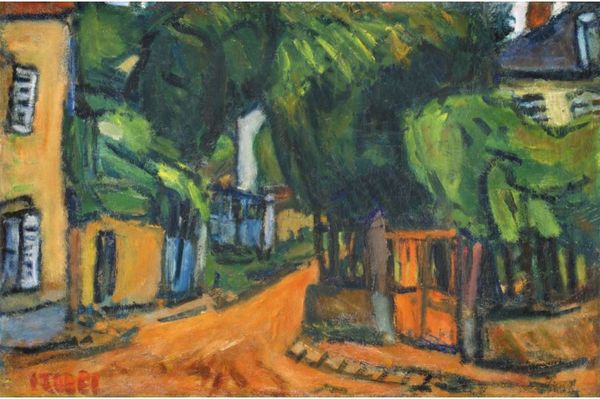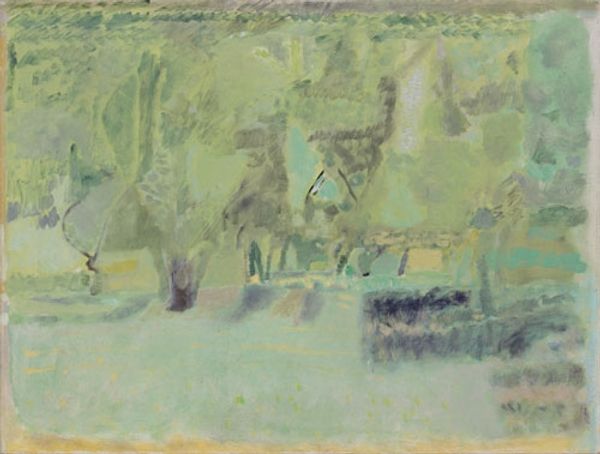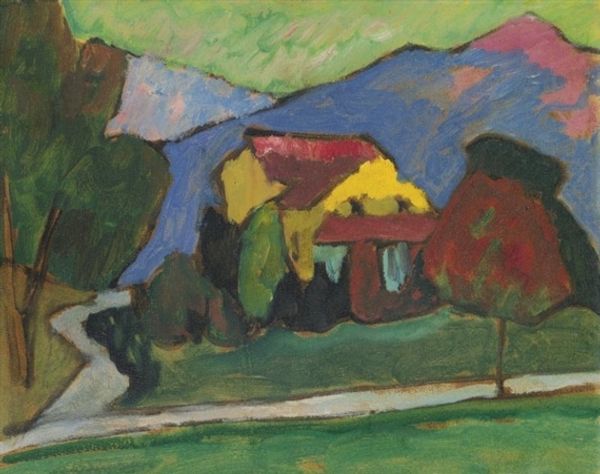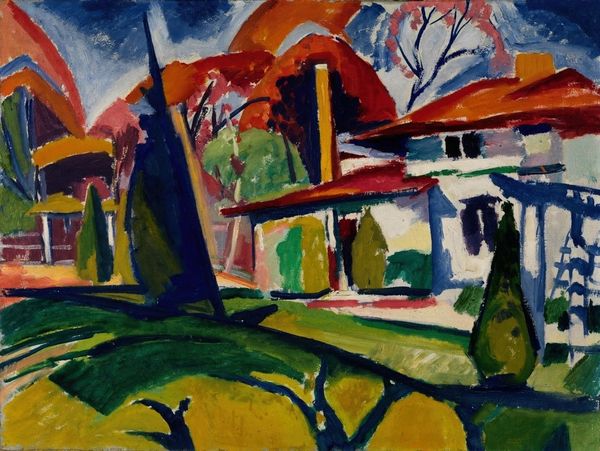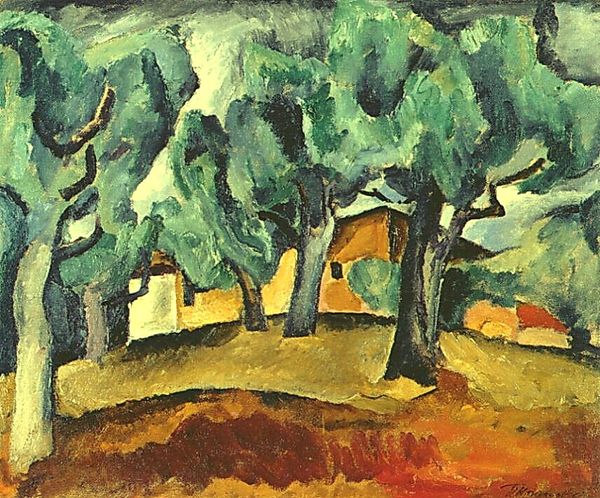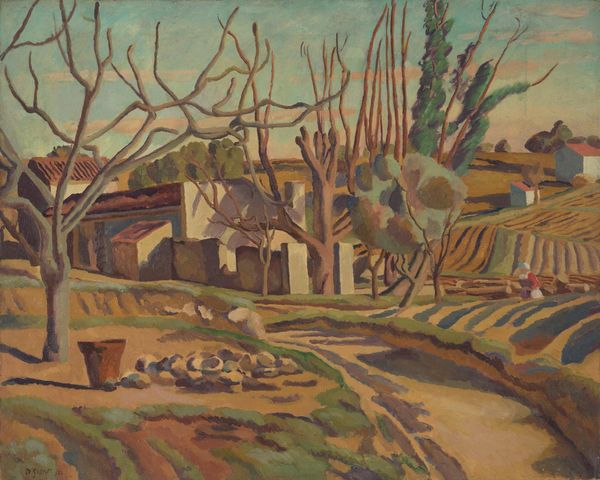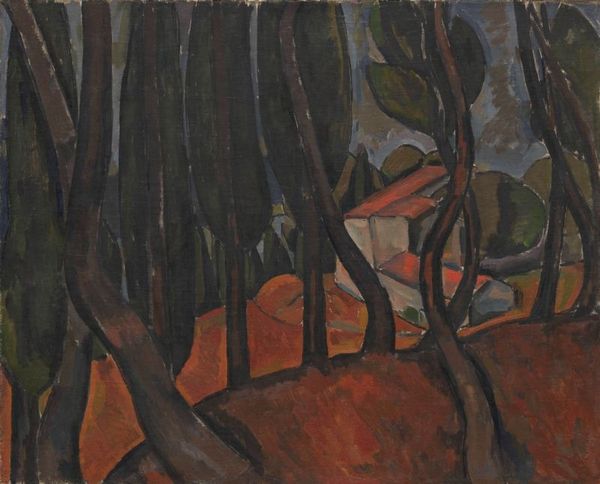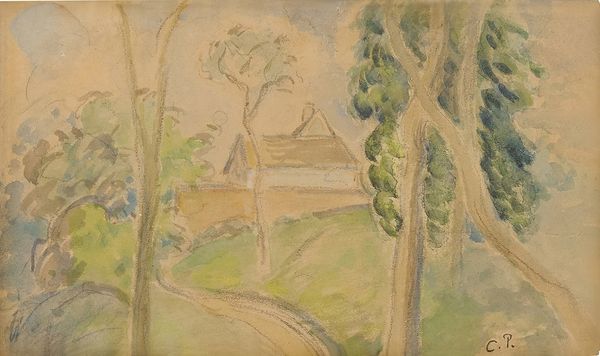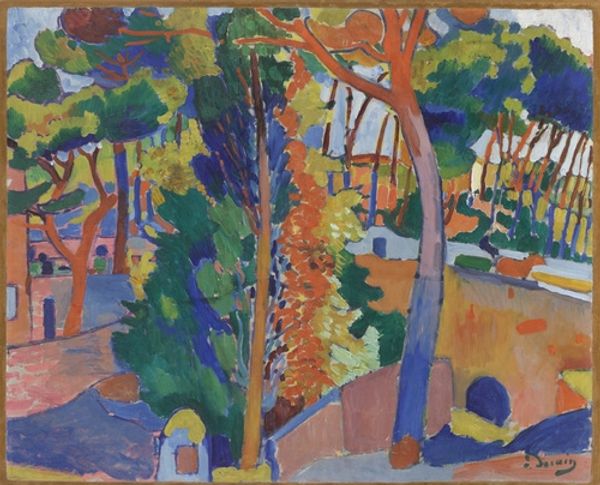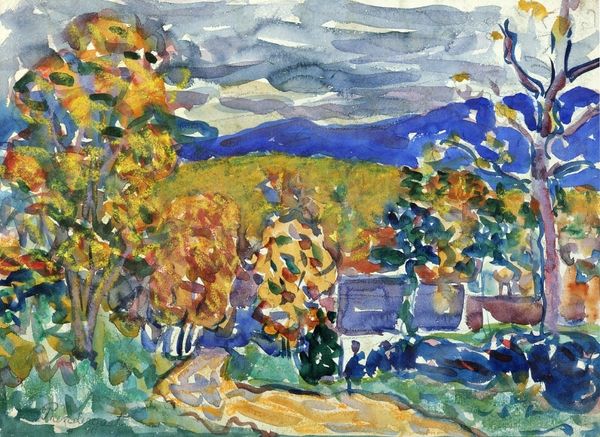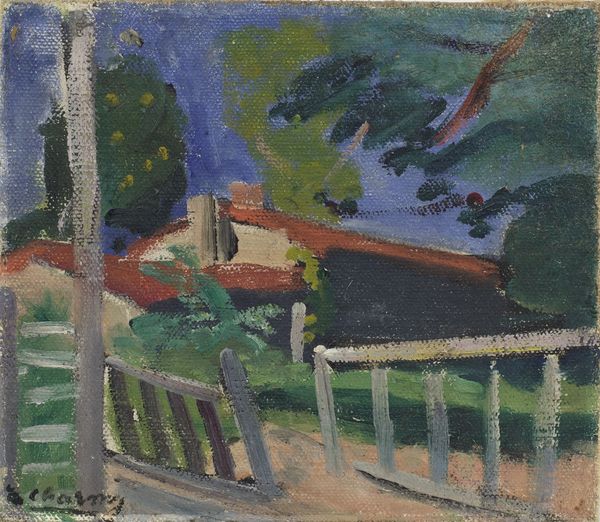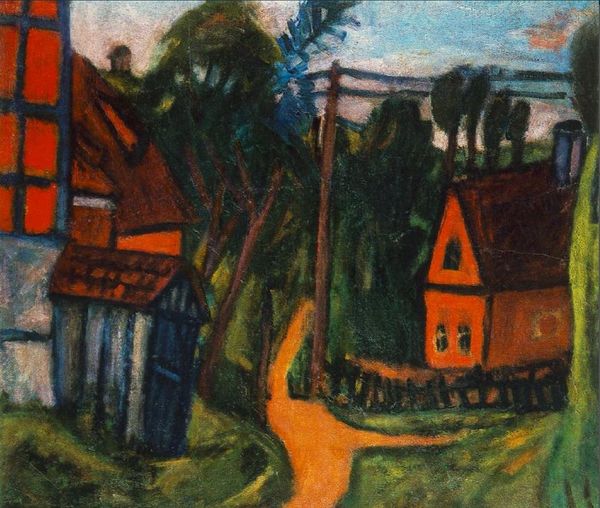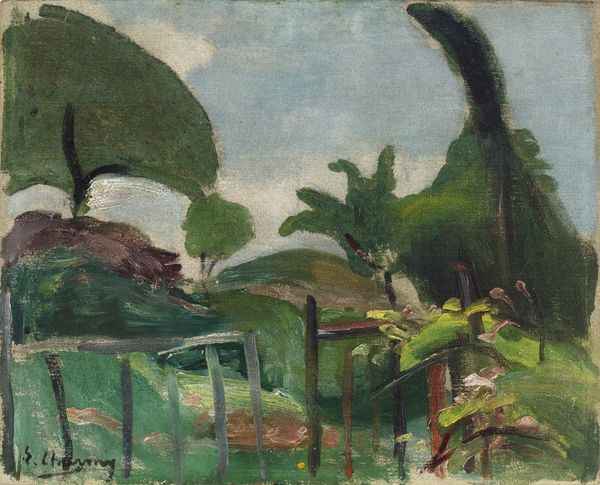
#
abstract painting
#
ink painting
#
possibly oil pastel
#
fluid art
#
acrylic on canvas
#
underpainting
#
painting painterly
#
watercolour bleed
#
watercolour illustration
#
watercolor
Copyright: Bela Czobel,Fair Use
Bela Czobel created this oil painting, Grosrouvre, in 1926. The painting depicts a scene in the French countryside, a village nestled among trees and rolling hills. The expressive brushstrokes and the use of colour evoke a sense of rural tranquility and the beauty of the natural world. However, this aesthetic is also a statement about the artist's place in the world. Czobel was a Hungarian Jew, working within the Parisian art world. His art had been labelled 'degenerate' by the National Socialists in Germany, an attitude influenced by deeply-held antisemitism. Czobel's landscapes represent a desire to find a place of peace in a world that was becoming increasingly hostile to certain groups of people. When looking at this work, we might reflect on the historical context in which it was made, and how Czobel's personal experiences shaped his artistic vision. Art historians often consult letters and biographies to uncover the complex relationship between art and life. This approach highlights the understanding that art is not created in a vacuum, but rather is shaped by the social and political forces of its time.
Comments
No comments
Be the first to comment and join the conversation on the ultimate creative platform.
